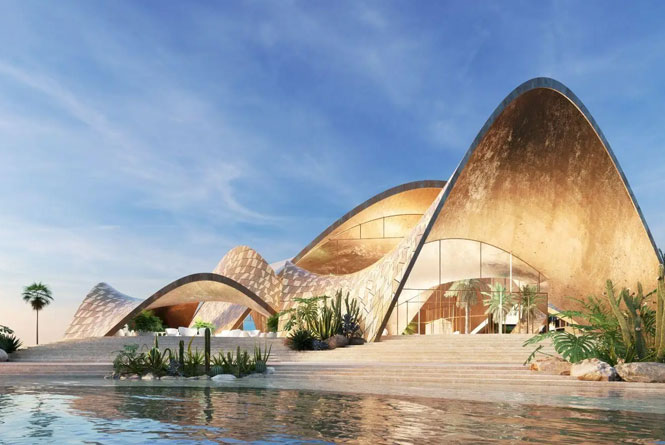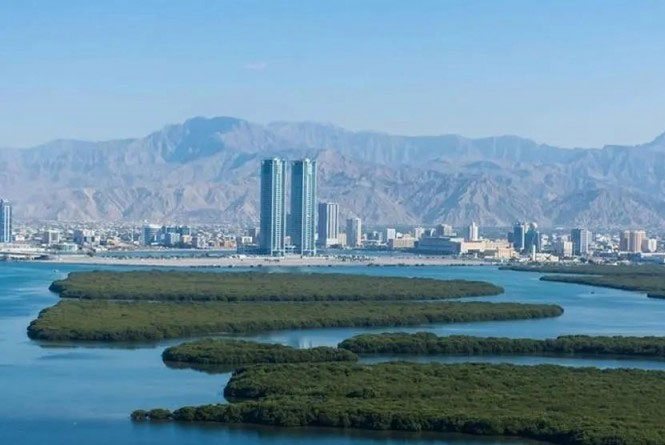Establishing a freezone business setup in Dubai has become a cornerstone strategy for international entrepreneurs and corporations aiming to access the vibrant markets of the Middle East, Africa, and South Asia. This model offers a unique blend of regulatory ease, fiscal benefits, and strategic positioning that is hard to find elsewhere. A successful freezone business setup in Dubai provides a robust platform for companies looking to expand their global footprint without the complexities often associated with foreign ownership. The process, while streamlined, requires a clear understanding of the various components involved, from selecting the appropriate jurisdiction to understanding the long-term compliance landscape. This article provides a detailed, step-by-step approach to planning and executing your freezone business setup in Dubai, ensuring you are equipped with the knowledge to make informed decisions and capitalize on the immense opportunities available.

A freezone is a designated geographical area within the United Arab Emirates where companies can operate under a special legal and tax framework, distinct from the mainland. The core concept behind a freezone business setup in Dubai is to attract foreign direct investment by offering a highly favorable operating environment. When you complete a freezone business setup in Dubai, your entity is considered to be operating 'offshore' in relation to the UAE mainland, meaning it is generally restricted from conducting business directly within the local UAE market without a local agent. However, it enjoys unparalleled freedom for international trade. Each of Dubai's 20+ free zones is typically tailored to a specific industry sector, such as technology (Dubai Internet City), media (Dubai Media City), or commodities trading (DMCC). This specialization creates powerful industry ecosystems, making a freezone business setup in Dubai not just about legal registration, but about integrating into a community of like-minded businesses.
The decision to pursue a freezone business setup in Dubai is driven by a compelling list of advantages. The most significant benefit is 100% Foreign Ownership. Unlike a mainland company, which requires a UAE national to hold 51% of shares, a freezone business setup in Dubai allows the international investor to retain full control of their enterprise. Secondly, there are comprehensive Tax Benefits. Companies benefit from zero corporate and personal income taxes for a renewable period, which can extend up to 50 years in many zones. This predictable fiscal environment is a major draw. Furthermore, a freezone business setup in Dubai allows for 100% Repatriation of Capital and Profits. There are no restrictions on moving your capital or earnings out of the country. Other critical advantages include custom duty exemptions, streamlined administrative processes, and modern, world-class infrastructure. These combined benefits create a low-risk, high-reward environment that is perfectly suited for international expansion.
Embarking on a freezone business setup in Dubai involves a series of logical, sequential steps. While specifics can vary between zones, the general framework remains consistent:
Choose Your Freezone and Business Activity: This is the most critical decision. Research which free zone best suits your industry. For example, a tech company would thrive in Dubai Silicon Oasis, while a logistics firm might prefer Jebel Ali Free Zone (JAFZA). Your chosen business activity must be included in the zone's approved list.
Select a Legal Structure and Company Name: Decide on your legal entity, such as a Free Zone Establishment (FZE) or a Free Zone Company (FZC). Then, choose a unique trade name that complies with the UAE's naming conventions.
Apply for an Initial Approval: Submit a preliminary application to the free zone authority, outlining your proposed business activities and structure. This secures an in-principle approval to proceed.
Submit Documentation: Prepare and submit the required documents, which typically include passport copies of shareholders and managers, a business plan, and proof of address.
Lease Office Space: Every freezone business setup in Dubai requires a physical address. Free zones offer flexible options, from full executive offices to cost-effective flexi-desks and virtual offices.
Obtain Your Licenses: Pay the required fees and receive your business license and registration certificate, officially completing your freezone business setup in Dubai.
Apply for Visas: Based on your office space size, you can apply for employee residency visas, which is a straightforward process managed by the free zone authority.

Having the correct documentation prepared in advance is key to a swift and hassle-free freezone business setup in Dubai. While the exact list may vary, you will generally need:
A completed application form from the chosen free zone authority.
Copies of shareholders' and managers' passports.
Passport-sized photographs.
A detailed business plan (required by some free zones for certain activities).
Proof of residential address (e.g., a utility bill or bank statement).
For corporate shareholders, a set of corporate documents including the certificate of incorporation, memorandum of association, and a board resolution approving the new Dubai setup.
All documents not in English or Arabic will need to be translated and notarized. Ensuring this paperwork is accurate and complete will prevent unnecessary delays in your freezone business setup in Dubai.
Understanding the cost structure is vital for budgeting your freezone business setup in Dubai. The investment is not a single lump sum but a combination of one-time and recurring annual costs. Major expenses include:
License Fees: This is the core cost and varies significantly by free zone and license type (commercial, service, industrial). Fees can range from approximately AED 10,000 to AED 35,000 or more.
Office Rental: The cost of your physical space is a major factor. A flexi-desk can start from as low as AED 7,000 per year, while a full office suite can cost AED 30,000 and upwards.
Visa Costs: Each employee visa involves government fees, medical testing, and insurance, costing roughly AED 4,000 - AED 7,000 per person.
Registration and Deposit Fees: Most free zones charge a one-time registration fee and a refundable security deposit.
A realistic initial budget for a standard freezone business setup in Dubai for a small trading or service company typically starts from AED 20,000.
Not all free zones are created equal, and the success of your freezone business setup in Dubai can hinge on selecting the right jurisdiction. Your choice should be guided by your primary business activity. DMCC is renowned for its gold, diamond, and commodity trading community. Dubai Internet City and Dubai Silicon Oasis are hubs for technology and innovation. If you are in finance or banking, the Dubai International Financial Centre (DIFC) offers a common-law framework. Consider factors beyond just the license cost, such as the zone's reputation, the network of companies already present, the quality of infrastructure, and the ease of visa processing. A careful, research-driven selection process will ensure your freezone business setup in Dubai is positioned for long-term growth and networking success.
While the process is designed to be efficient, newcomers to a freezone business setup in Dubai can face challenges. A common pitfall is selecting the wrong free zone or license type, which can later restrict business activities. To mitigate this, consult with a reputable business setup consultant or conduct thorough independent research. Another challenge is navigating the documentation and legal requirements, which can be daunting without local knowledge. Partnering with a professional service provider can streamline this process significantly. Lastly, understanding the ongoing compliance and renewal procedures is crucial to avoid penalties. By being aware of these potential hurdles from the outset, you can plan effectively for a smooth freezone business setup in Dubai.
In summary, a freezone business setup in Dubai is a powerful mechanism for global business growth, offering unparalleled benefits in ownership, taxation, and market access. By methodically working through the steps of selection, documentation, and financial planning, you can establish a thriving enterprise in one of the world's most dynamic commercial hubs. The key to success lies in thorough preparation and a clear understanding of your business goals, ensuring that your freezone business setup in Dubai becomes a cornerstone of your international success.
Q1: What is the main difference between a freezone business setup in Dubai and a mainland company?
A1: The primary difference is ownership. A freezone business setup in Dubai allows for 100% foreign ownership, while a mainland company typically requires a UAE national to own 51% of the shares. Additionally, a freezone company's trading rights are generally limited to the free zone and international markets, whereas a mainland company can trade directly within the UAE local market.
Q2: How long does it take to complete a freezone business setup in Dubai?
A2: The timeline can vary depending on the free zone and the complexity of the application, but a standard freezone business setup in Dubai can typically be completed within 2 to 5 weeks. This includes the time for application processing, document submission, and final license issuance.
Q3: Can a freezone company sell products directly in the UAE local market?
A3: Generally, no. A freezone business setup in Dubai is primarily intended for international trade. To sell goods within the UAE mainland (outside the free zones), a freezone company usually must work through a locally registered distributor or agent, or establish a separate mainland entity.
Q4: Are there any hidden costs after the initial freezone business setup in Dubai?
A4: The main ongoing costs are the annual license renewal fee, office rental renewal, and employee visa costs. It's essential to factor these into your business plan. Most reputable free zones are transparent about their fee structures, and there are typically no "hidden" costs if you review the service agreement carefully.
Q5: What type of license do I need for a freezone business setup in Dubai?
A5: The license type depends on your planned activities. The main categories are:
Commercial License: For trading and import/export activities.
Service License: For providing professional or artisanal services.
Industrial License: For manufacturing or industrial production.
You must select the license that accurately reflects your business activities during your freezone business setup in Dubai.










Zhuoxin Consulting relies on its Chinese service network and Dubai executive team to provide professional one-stop business services without communication barriers for Chinese companies to enter the Middle East market. Its business covers company establishment and maintenance, accounting and taxation, bank account opening, PRO services and business services.
Zhuoxin Consulting has high-quality business resources and maintains close cooperation with many free zones, bankers and tax departments in the UAE to escort your expansion in the Middle East market.
 Add WeChat
Add WeChat